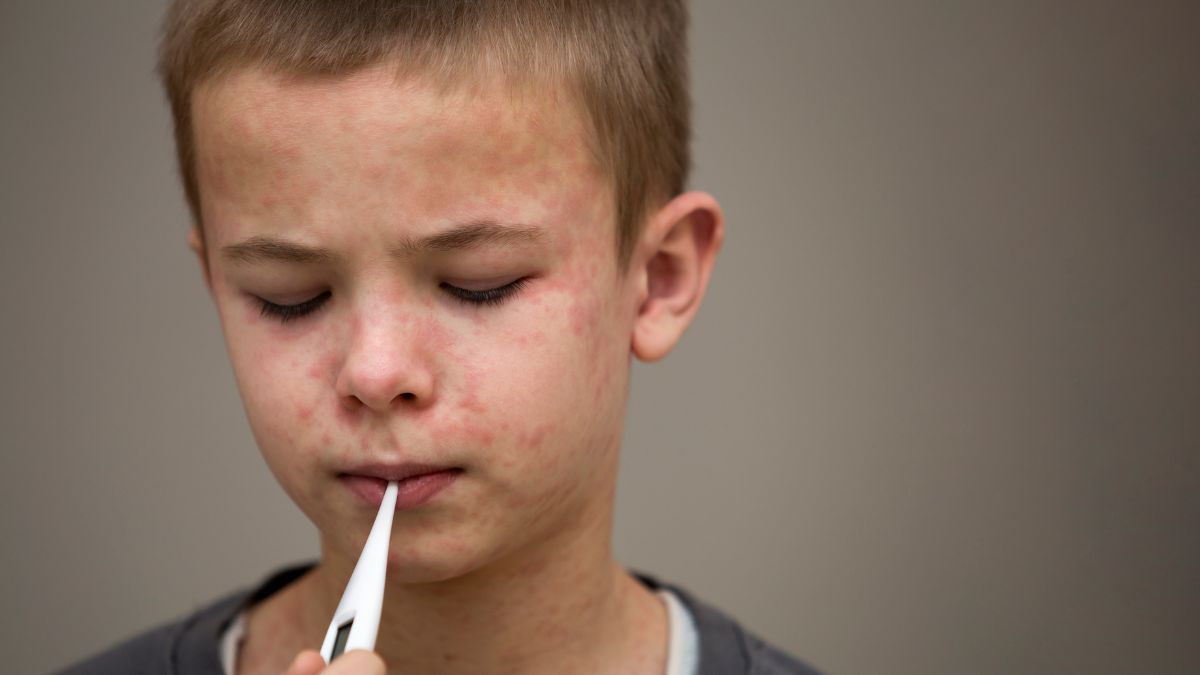The West Texas measles outbreak that corporate media claimed would be the start of a national epidemic is officially over just eight months after it began.
Explainer New York Court Overturns $454 Million Fine Against Trump
The Texas Department of State Health Services (TX DSHS) announced on Aug. 18 that the measles outbreak affecting areas of West Texas, including Gaines County, is no longer active. The virus, which impacted more than 700 individuals, primarily children, in the Mennonite and surrounding communities since January, appears to have lost its virulence in the area. TX DSHS reported that more than 42 days have passed since a new case was reported in any of the counties that previously showed evidence of ongoing transmission.
While DSHS committed to continuing its surveillance of the region, stating that “the end of this outbreak does not mean the threat of measles is over,” the department acknowledged that without new cases, there was no reason to keep updating its interactive outbreak dashboard.
The conclusion of the measles outbreak is viewed positively by many Texans and Americans but may not align with narratives pushed by some media outlets. Coverage of the case count in areas like Seminole, Texas, dominated headlines earlier this year, leading to concerns about a potential national epidemic.
Critics argue that media coverage focused more on sensationalism than on the underlying causes of the outbreak. Reports often failed to address the implications of increased border crossings from countries experiencing measles outbreaks, which could have contributed to the situation in Texas. Instead, some media outlets criticized state leaders for their responses during the outbreak.
Health and Human Services Secretary Robert F. Kennedy Jr. faced scrutiny from various media sources for his approach to the outbreak. The New York Times, for instance, accused Kennedy of downplaying the situation, despite the fact that six months into the outbreak, there were only 35 more reported measles cases than the total recorded in 2019.
Some media outlets suggested that Americans opting out of certain vaccinations would worsen the crisis and potentially increase the death toll. The Washington Post highlighted the impact of “scientifically false claims of the anti-vaccine movement” on public perception, labeling this trend as “vaccine resistance.” Forbes also characterized the lower vaccination rates in the affected communities, which may be rooted in religious beliefs, as a “problem.”
While measles is indeed highly contagious and poses risks to vulnerable populations, the portrayal of the virus by some media outlets has been criticized as exaggerated. The recent conclusion of the Texas measles outbreak raises questions about the accuracy and intent of media narratives surrounding public health crises.
Jordan Boyd is a staff writer at The Federalist and producer of The Federalist Radio Hour. Her work has also been featured in The Daily Wire, Fox News, and RealClearPolitics. Jordan graduated from Baylor University where she majored in political science and minored in journalism. Follow her on X @jordanboydtx.
Why it matters
- The West Texas measles outbreak, affecting over 700 individuals, is officially declared over, alleviating public health concerns.
- The conclusion of the outbreak challenges media narratives that suggested a potential national epidemic.
- Critics argue that media coverage focused on sensationalism rather than the outbreak's underlying causes, including vaccination rates.
- The end of the outbreak raises questions about the accuracy of media portrayals of public health crises.
What’s next
- TX DSHS will continue surveillance in the region despite the outbreak being declared over.
- Public health officials may reassess vaccination strategies in light of the outbreak's conclusion.
- Further investigations into media coverage and its impact on public perception of health crises may be warranted.
